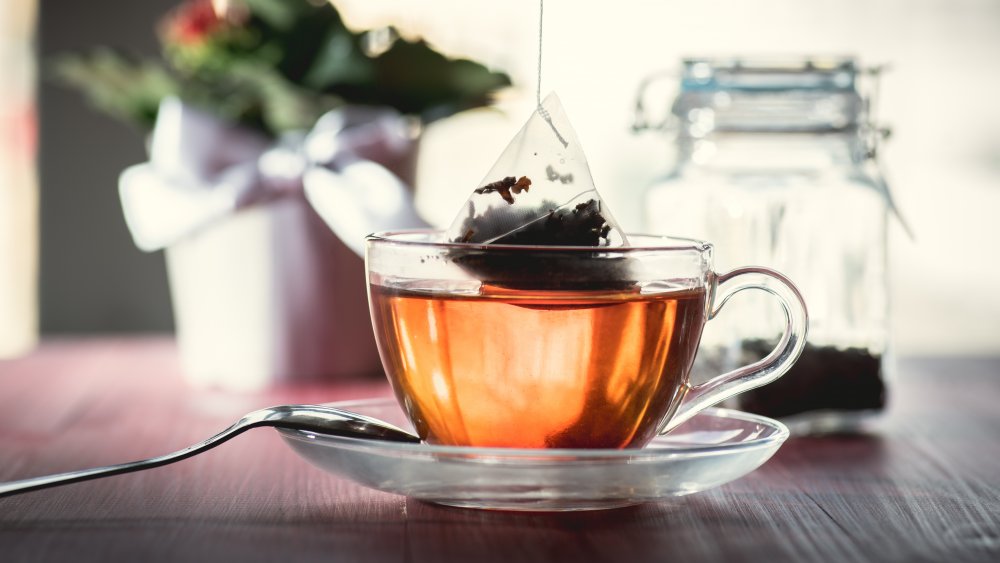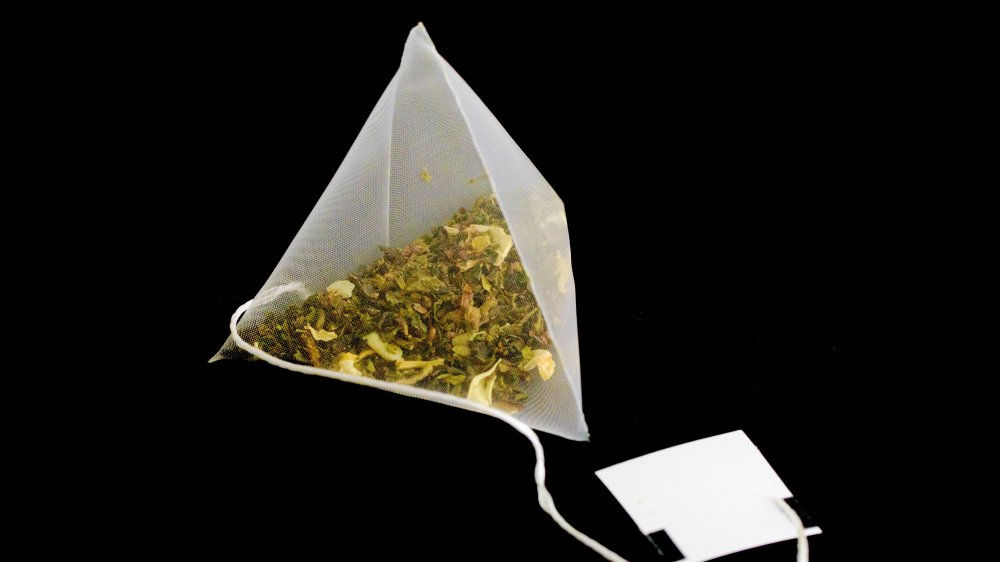Read This Before Brewing Your Next Cup Of Tea
Tea is the drink that paparazzi delight in taking pictures of, only when accompanied by the hands of British royalty. Tea (along with matcha-infused donuts) is the drink that suddenly came back into style with the rise of the American hipster, along with kimchi tacos, mason jars, and home-brewed beer. If you drink it "herbal" or "sweet," you're probably Gen Z. If you drink it "fruity" or "herbal," you may be a Millennial (via World Tea News). If, on the other hand, you drink coffee leaf tea, you're clearly in the know (via The Perfect Daily Grind).
Finally, if you prepare your tea with tea bags, chances are you're also consuming a healthy dose of microplastics. Even certain paper-based bags, and especially "pillow-style" tea bags, can be made up of 20 to 30 percent plastic (via Green Child Magazine and Wild Minimalist). It goes without saying that nylon mesh tea bags do. And when, in 2019, researchers at McGill University steeped plastic nylon teabags at brewing temperature (around 200 Fahrenheit), they found that a single bag could release 11.6 billion microplastics and 3.1 billion nanoplastics into a single cup. In case you need confirmation that that's a lot of microplastics, as The Guardian points out that's many thousands of times the amount you ingest after drinking a liter of water out a plastic water bottle (just 44 particles), or downing a serving of mussels (90 particles).
The truth about microplastics
Drink tea or not, every week you're likely to ingest a credit card's worth of plastic, or approximately 5 grams (via CNN). We've only just begun to be able to detect the presence of microplastic in human organs, and while we're still studying the possible, negative effects of microplastics on human health, lack of evidence doesn't mean you're necessarily in the clear (via The Guardian). As the U.S. National Library of Medicine observes such particles both absorb and release chemicals and harmful pollutants.
The Conversation, meanwhile, ran a comprehensive review of scientific studies on the potential effects of microplastics on animal health. It found that 45 percent of such studies concluded that microplastics did, indeed, affect the gene expression, growth, reproduction, or survival of various animal species. And when, in 2019, the McGill researchers studied the effect of the nylon and polyethylene terephthalate (PET) particles released by teabags on water fleas, the results were not comforting. "It really stresses them out," McGill chemical engineering professor Nathalie Tufenkji, told CBC. The water fleas began swimming "crazily," and even "ballooned" in shape. PET, it's worth noting, when heated up, can release the toxic metalloid, antimony (via Eco Watch). This, in turn, has been directly linked to vomiting, diarrhea, and stomach ulcers when consumed.
The next time you're craving a cuppa? Maybe go loose leaf for now.

